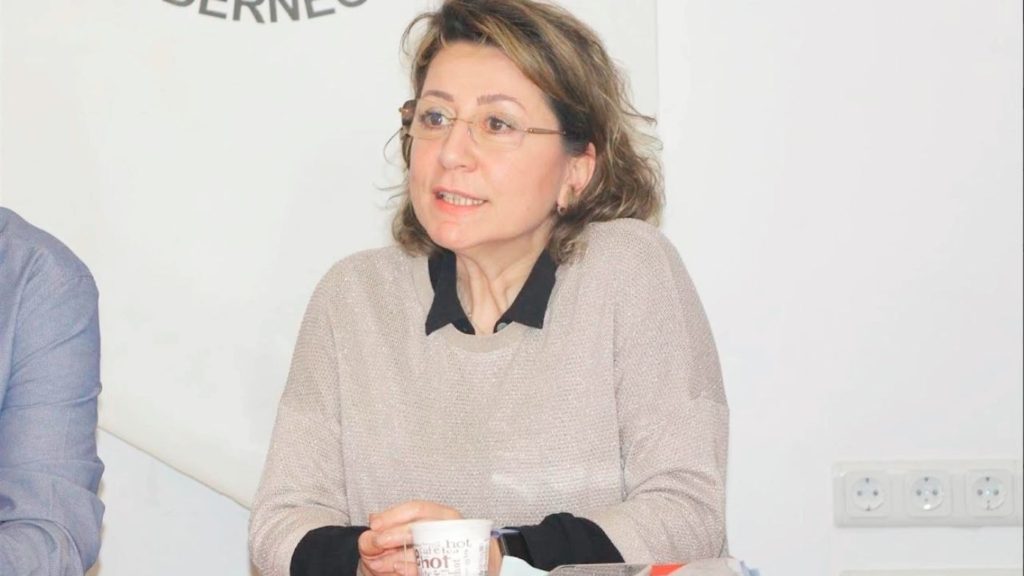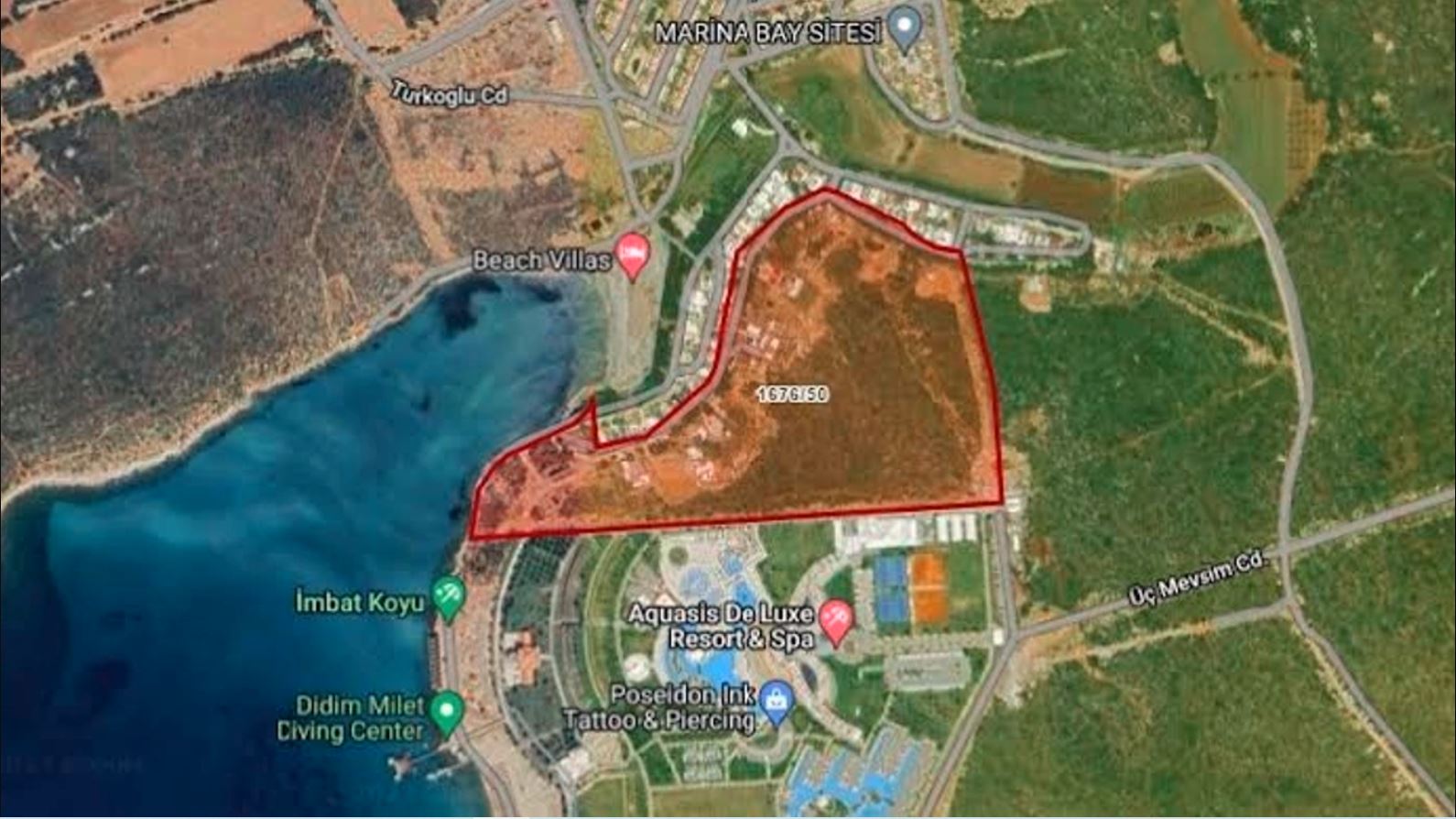Sales of publicly-held land across Didim has sparked a response from the Didim Association, which keeps an eye on such developments.
The government’s Privatization Administration has put a total of 30,669 kilometres of land portfolio for sale in Turkey’s important tourism regions. The total number of land for sale in coastal areas exceeds the areas of Belgium, Albania, Slovenia and Macedonia.
In regions that are popular with domestic and foreign tourists such as Muğla, Antalya, İzmir and Aydın, the lands will be opened for development, especially for hotels and tourism management.
According to the information on the news site called ‘Turizm Gündem’, it was learned that a total of 94 lands in 6 neighbourhoods in Didim will be opened for development.
Among the most prominent sales is a large slab of land that borders the Aquasis Deluxe Hotel and near to Imbat Beach off the Marina Road. The largest area being disposed of is around 3.4 million square metres of land in the Yalıköy district, on the outskirts of Didim. Other parcels in Didim being tendered are those across Hisar, Çamlık, and Cumhuriyet districts.
Voices spoke to the President of the Didim Association, Filiz Çelik Hekimoğlu, on the issue.

Filiz Hekimoğlu
Summarizing the reason for the privatization of the treasury lands as “The state needs money, it is trying to generate income for the treasury”, the chairman of the association Hekimoğlu explained how the implementation will affect the development in the cities.
She said: “Urban planning is done on the basis of public benefit, it is done for the country to have a healthy future. For this, the existence of resources allocated to be used for public benefit is of great importance. The development of a healthy city is directly proportional to the existence of public resources. In other words, the more public resources and land you have, the healthier your city will develop.
“Schools, hospitals, market areas, social facilities, parks, parking lots etc. for the public benefit in a city. Many facilities and institutions are built on public lands. Therefore, the main owner of the privatized lands today is the people. Selling it privatized is a big mistake.”
Hekimoğlu stated that the privatization of public spaces is a decision that will hinder the solution of urban problems. “If it continues like this, only private properties will remain in our cities. You can add enough hospitals to your project when planning a city. But if you do not have enough public land, these plans will remain on paper and the facilities that the public need cannot be built,” she said.
To resist the privatization of lands in Bodrum, the zoning plans were annulled in a lawsuit filed by the Muğla Branch of the Chamber of City Planners. However, with the new council decision, the said lands were reopened for development.
The movement of NGOs is prevented by the court. Thus, the weakness of such organizations is tried to be reinforced. In addition to the decisions taken by the courts, Hekimoğlu drew attention to another problem related to the functioning of NGOs themselves.
“Civil society organizations succumb to bilateral relations, especially in small places like Didim and Bodrum. The people inside the NGOs cannot resist the people in the local government with whom they constantly come face to face and perhaps do business. They turn a blind eye to some things so that their relationship does not deteriorate.”
Stating that NGOs need to raise awareness first to engage in resistance, Hekimoğlu added: “You can fight against something you know. You can’t resist or fight something you don’t know. In this sense, NGOs should meet with experts and get more information on the subject. To get the support of the public, studies should be carried out to inform the public.”
